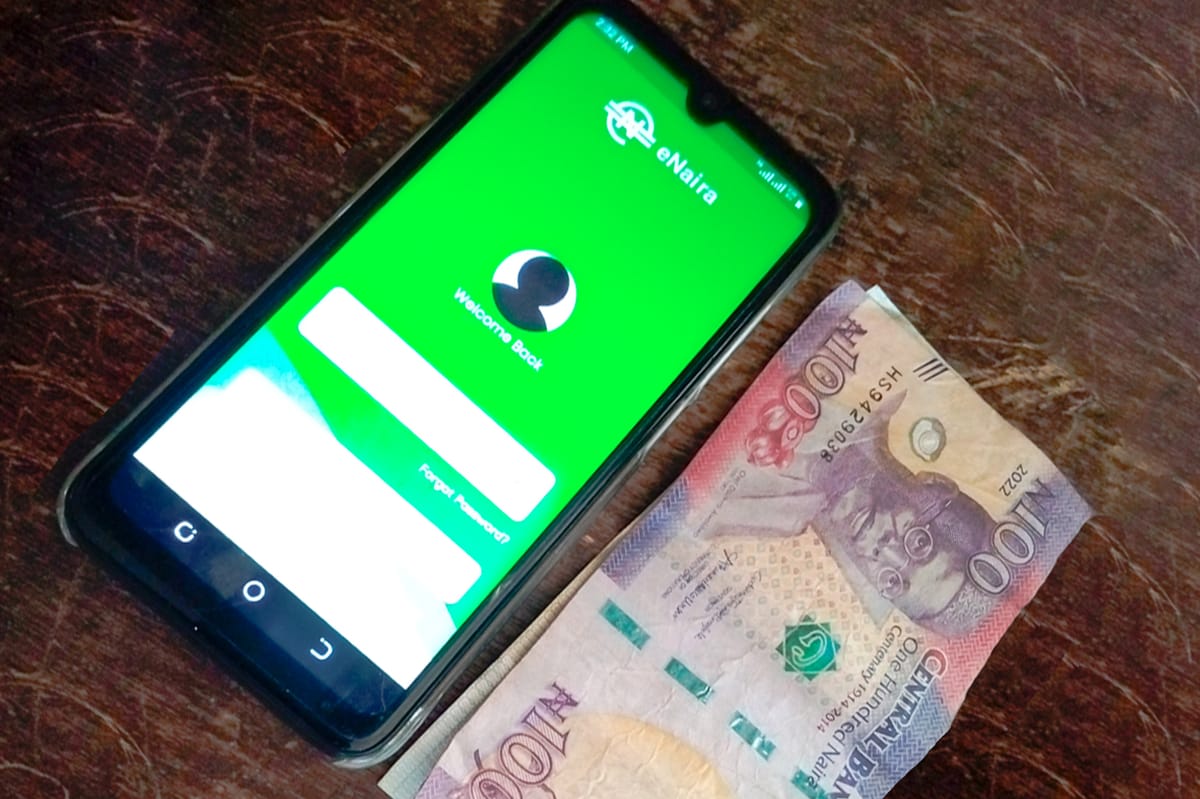
The directive, issued on the 6th of December 2022 by CBN, limits the use of cash nationwide. As explained by the CBN governor, Godwin Emefiele, this was done in line with plans to ensure the Nigerian economy goes 100 percent cashless.
In the circular, signed by the CBN's Director of Banking Supervision, Haruna Mustafa, the CBN directed all financial institutions to ensure that over-the-counter cash withdrawals by individuals and corporate entities do not exceed N100,000 ($225) and N500,000 ($1,125), respectively, per week, or less than $1,000 and $5,000 per month. Deposits of cash into ATM machines are also limited. The policy will come into effect from January 9, 2023
Upon hearing the news, Nigerians have made their feelings about the new policy clear, with most seeing it as another attempt to force Nigerians to use the eNaira (Nigeria's Central Bank Digital Currency).
So why do Nigerians see the new cash withdrawal limit as an unwelcome development, and is the new policy truly aimed at forcing Nigerians to use the eNaira?
It started in February 2021 when the CBN placed restrictions on crypto transactions and ordered banks and other financial institutions to stop facilitating crypto transactions. To support their decision to place restrictions on crypto, the CBN cited the lack of regulation and anonymity in the crypto space, as well as the tendency for cryptocurrencies to be used for illegal activities such as money laundering and terrorism funding. Banks subsequently started freezing the accounts of people who have a history of crypto transactions, which led to protests from citizens.
Immediately after that, the CBN launched the eNaira on October 25, 2021. Most Nigerians who were active in the crypto space at the time saw the move as manipulation from the government. They felt the government's decision to launch the eNaira just a few months after banning crypto was an attempt to force them to use eNaira.
In response, Nigerians on social media began to use their platforms to discredit the eNaira, and many even went as far as going to the Google Playstore to leave one-star reviews in a bid to discourage others from using the eNaira wallet. (at the time of writing the score stood at 3.9)
To confront the widespread rejection the government has launched multiple initiatives in support of eNaira use such as supporting businesses that use digital currency.
However, while the CBN's efforts towards a 100 percent cashless economy is a noble cause, the CBN's approach has its flaws, and the latest cash withdrawal limit is no exception.
First, Nigeria runs a cash-based economy, and a huge percentage of the population does not even have a bank account. There are no banks in rural areas, which has led to cash-based communities. Therefore, carrying out transactions online is something that is alien to them since they do not even have access to the most basic financial services, such as ATMs.
The infrastructure and products available to facilitate online transactions are also of a poor quality. Bank apps and other financial services available online for Nigerians are unreliable; there are incessant cases of network issues, failed transfers, people sending money that gets debited but the bank doesn't credit the recipient's account for weeks, and even problems arise with basic things such as setting up an account.
The relaunch of the eNaira, the new cash withdrawal limit, and other financial regulations put in place by the Central Bank of Nigeria are good things, but it's all a case of "putting the cart before the horse" if financial institutions can't even render the most basic financial services without frustrating customers.
With this sudden change to the cash withdrawal limit, the government may be trying to promote the eNaira and other digital payment systems, combat inflation, reduce the amount of cash in circulation, and also restrict access to funds by terrorists.
Locals argue that infrastructures that will familiarize citizens with the concept of online banking need to be put in place first before a cashless economy can become a reality.

